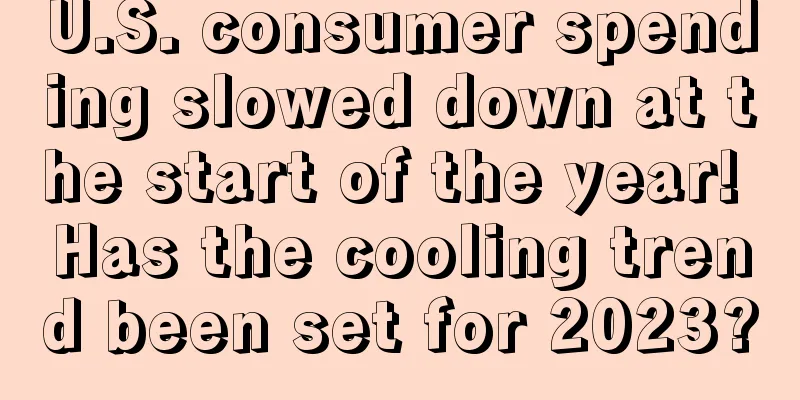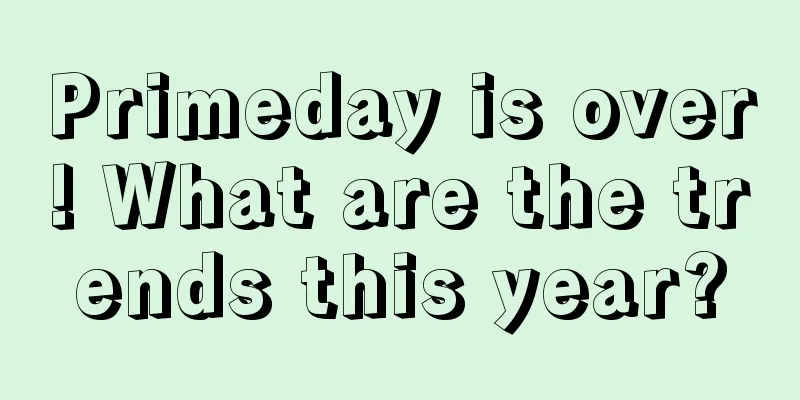U.S. consumer spending slowed down at the start of the year! Has the cooling trend been set for 2023?

|
It is learned that the latest research shows that US consumer spending may shrink further in January, and retailers face greater pressure to clear inventory. At the same time, the risk of a US recession is increasing, and the weak consumer spending trend may continue in 2023.
In previous years, January is usually the peak period for consumers to return or exchange goods after Christmas shopping, and it is also an important period for retailers to clear excess inventory during the peak season. However, research shows that American consumers' credit card balances have risen, personal savings rates have fallen, and sales of large items have weakened significantly. January also marks the end of many retailers’ fiscal years, and sales results during this period will also affect the success or failure of their holiday quarter sales performance. January sales may also set the tone for 2023, with some economists and retail industry observers predicting that the United States is about to fall into a recession.
As a result, more retailers are launching promotions to drive consumer purchases during the post-holiday slow season, seize the opportunity to sell excess inventory and get a good start to the new fiscal year.
So far, early results for holiday season sales have been better than some economists and retailers had feared. Sales from Nov. 1 to Dec. 24 rose 7.6%, according to Mastercard SpendingPulse, which measures in-store and online retail sales for all forms of payment.
But store traffic during the peak holiday season has lagged significantly. According to data from analytics firm Placer.ai, from Black Friday to the week of Christmas, traffic at six retailers, including Walmart, Target, Best Buy, Nordstrom, Kohl's and Macy's, fell an average of 3.22% year-on-year. It has fallen nearly 5% compared to before the epidemic.
Economists are closely watching consumer indicators as the new year begins.
On the positive side, unemployment is low and the job market remains tight, said Michael Zdinak, an economist at S&P Global Market Intelligence. Inflation has cooled, with price increases in November less than expected, he said.
But on the other hand, food prices remain high, retail demand is weakening, and savings are not looking as strong. The personal savings rate has fallen significantly. According to the Bureau of Economic Analysis, people saved 2.4% of their disposable income in November.
Zdinak expects the recession to begin in the first quarter of 2023 and last for two quarters, with consumers who spent more than their budgets during the holiday shopping season cutting spending further in 2023. Editor✎ Ashley/ Disclaimer: This article is copyrighted and may not be reproduced without permission. |
Recommend
Cut 2,350 jobs! Macy's announces new layoff plan
It is learned that Macy's Co., Ltd. plans to c...
Black Friday is over! Ads are soaring, orders are falling, and exclusive discounts are collapsing!
Recently, the annual Black Friday promotion has of...
As the epidemic spreads globally, how should cross-border sellers respond?
On February 27, at the Guangzhou Municipal Governm...
What is Shopee Store Selection? Shopee Store Selection Review
How to select products for Shopee stores as a newb...
What is Mingtu Intellectual Property? Mingtu Intellectual Property Review
Mingtu Intellectual Property is a company that foc...
Desperate! Collectively, no orders! Amazon has a major bug, and sellers are crying...
Today is enough to make many sellers doubt their l...
Amazon will not raise prices in 2025?
text First, there were frequent warehouse explosi...
Online grocery sales in the United States reached $97.7 billion in 2021! More than 70% of American households will shop online!
<span data-shimo-docs="[[20,"获悉,据外媒报道,2021...
99% of sellers don’t know how to use “mobile vertical screen advertising”
According to relevant data, the proportion of mob...
What is EU-CHINA LOGISTICS? EU-CHINA LOGISTICS Review
EU-CHINA LOGISTICS is the first logistics park in ...
What is MyYearbook? MyYearbook Review
MyYearBook is the third largest social networking ...
Tens of thousands of stocks were forced to be removed! Amazon made a shocking operational error
I believe that no matter what you do, you will mee...
AI enters the cross-border e-commerce circle! ChatGPT brings great changes to cross-border e-commerce!
Maybe in AI ask World Before, who also not yet ev...
What is Klaviyo? Klaviyo Review
Klaviyo is a one-stop digital marketing tool that ...









